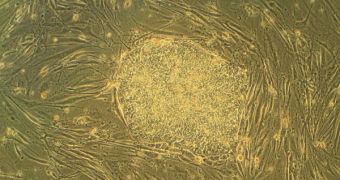In some of the most serious and advanced cancer cases, aggressive chemotherapy is the only option doctors have in trying to cure the patient. However, because of the way it acts, chemo doesn't only attack cancer, but affects the entire body, and can severely hamper the operations of bone marrow, leading to some nasty side-effects. Now, researchers are learning to use stem cell therapy to repair this type of damage, and a drug originally developed to fight stomach ulcer is the key ingredient.
“One of the treatments for leukemia is to give high doses of chemotherapy, which gets rid of the leukemia, but it also gets rid of the immune system. And I need to replace the immune system, otherwise the patient will die,” Children’s Hospital in Boston Oncologist Leonard Zon explains, quoted by Wired. A trail test, using the new therapy and drug, is currently underway at the Dana-Farber Cancer Institute in Boston. If successful, the therapy could reverse pretty significant damage in people who would otherwise have little to no chances of surviving.
The only method of repairing a destroyed immune system, experts know, is a bone marrow transplant, but finding a suitable donor in due time is something that doesn't happen very often. For the last half-a-decade, scientists have been using umbilical blood infusions, which contain large amounts of stem cells, and which can be matched to the requirements of the patients more easily. The main idea is to let the stem cells in the blood find their way into the spine, regenerate the bone marrow, and start producing red and white blood cells, as well as other immune cells.
The main issue with this type of blood is that most older patients require at least two infusions. “Two cords go into a person and their immune systems are different, because they come from two different babies. The immune systems start fighting each other, and then over a three month period one of them usually wins out. And nobody thinks that this fighting of the immune systems is a good thing,” Zon adds.
In their search for a chemical that would make stem cells divide and migrate into the bone marrow, the researchers, who tested more than 2,500 substances, found one, previously used for fighting ulcer acid, which encouraged the multiplication of the precious cells. “In the early 80’s the chemical had been given to patients who have high stomach acid. There were five clinical trials with this chemical, and it actually worked and had a good safety profile,” the expert shares. In a few months, he explains, researchers will know exactly if it works in humans the way they intended the therapy to.

 14 DAY TRIAL //
14 DAY TRIAL //